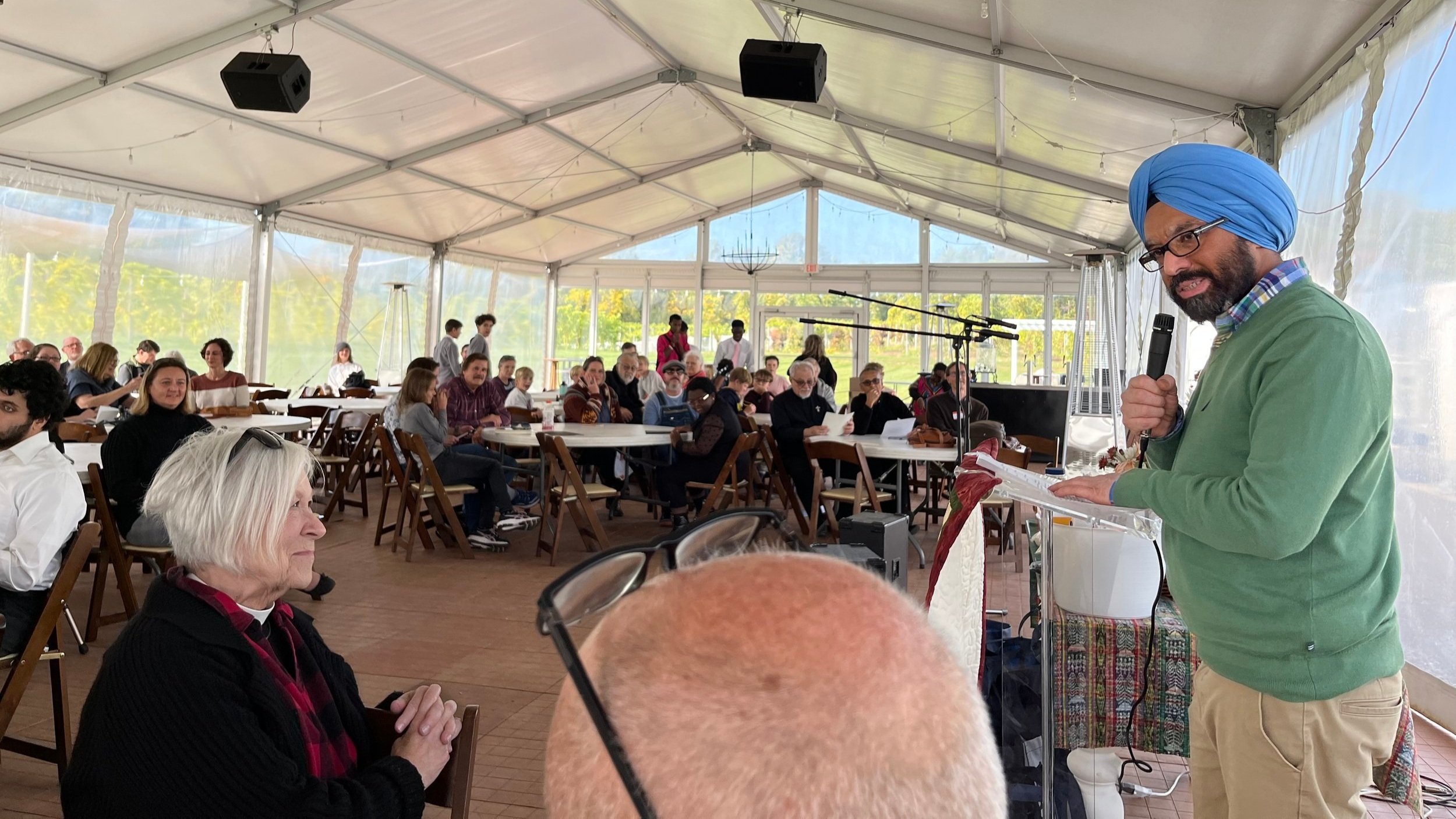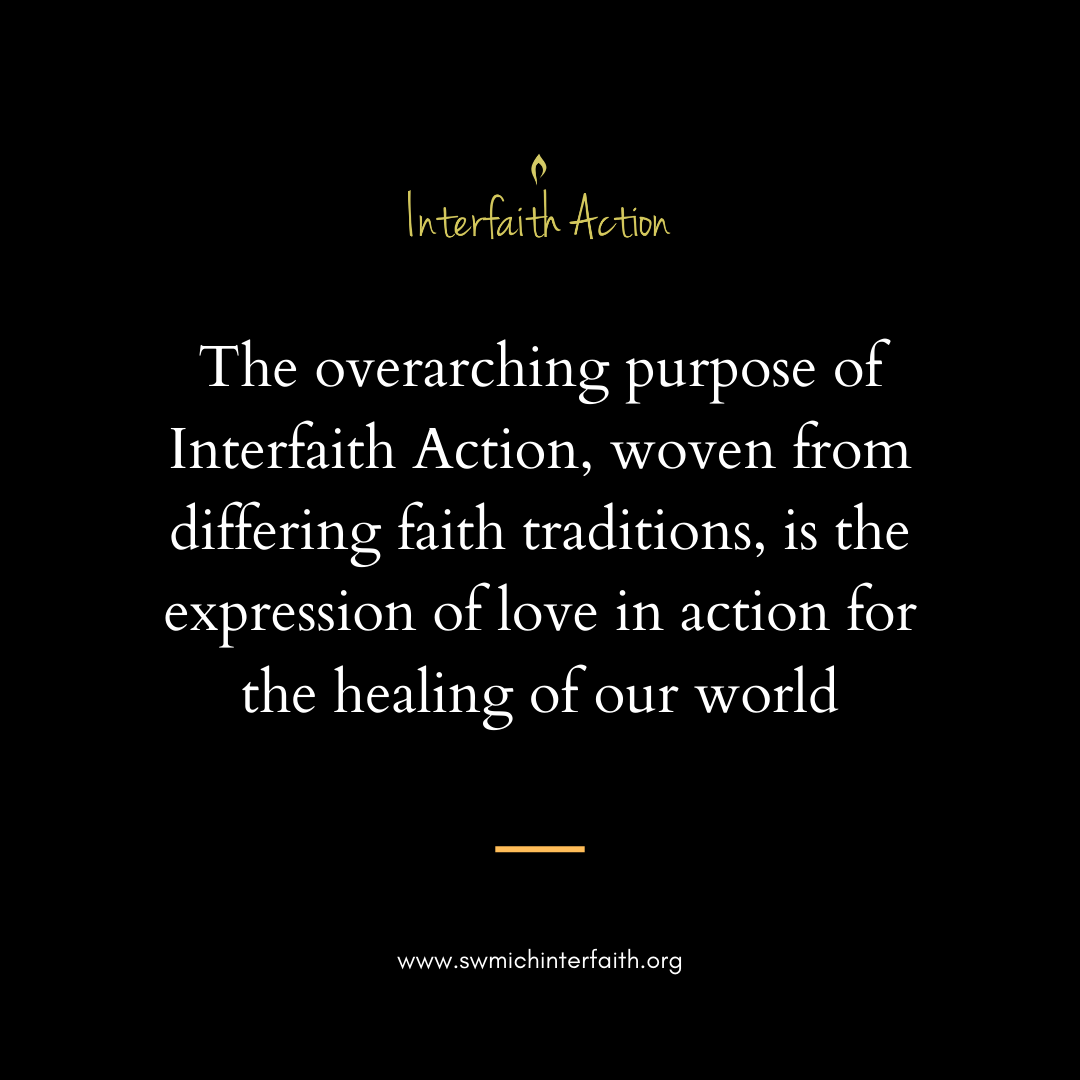Our Purpose
Interfaith Action (SW Michigan Peace & Justice Collaborative) is a coalition of over 50 faith communities in SW Michigan. The overarching purpose of Interfaith Action, woven from differing faith traditions, is the expression of love in action for the healing of our world. Interfaith Action’s work is done through our working groups and alongside community partners. We aim to practice and promote:
expressing the dignity of all human beings
engaging in peacemaking and countering violence
advancing justice, especially for those on the margins of community life
upholding the holiness of all creation
Our Organization
Interfaith Action is not a membership organization; rather it is a collaborative of engaged faith communities. Each faith community articulates its engagement in differing ways— some support the entirety of Interfaith Action’s initiatives, others focus on one area of concern. Some faith communities have extensive and continuous involvement, others engage episodically, and others engage on a single issue of concern.


